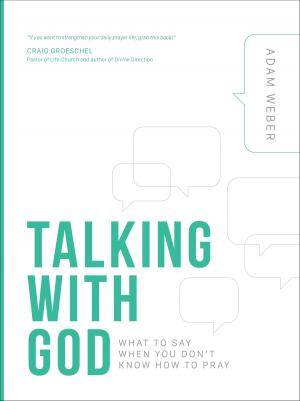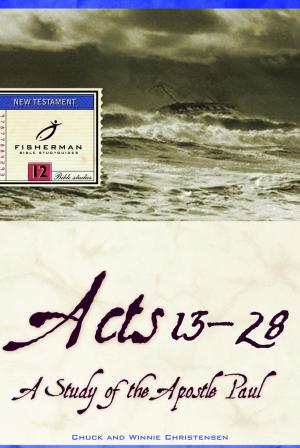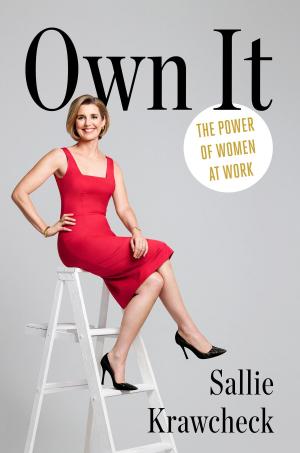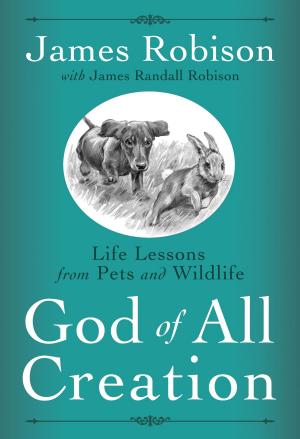The Myth of Excellence
Why Great Companies Never Try to Be the Best at Everything
Business & Finance, Career Planning & Job Hunting, Entrepreneurship, Entrepreneurship & Small Business, Management & Leadership, Management| Author: | Fred Crawford, Ryan Mathews | ISBN: | 9780307422194 |
| Publisher: | The Crown Publishing Group | Publication: | December 18, 2007 |
| Imprint: | Crown Business | Language: | English |
| Author: | Fred Crawford, Ryan Mathews |
| ISBN: | 9780307422194 |
| Publisher: | The Crown Publishing Group |
| Publication: | December 18, 2007 |
| Imprint: | Crown Business |
| Language: | English |
The Undiscovered Consumer . . .and the Mistake of Universal Excellence
What do customers really want? And how can companies best serve them? Fred Crawford and Ryan Mathews set off on what they describe as an "expedition into the commercial wilderness" to find the answers. What they discovered was a new consumer -- one whom very few companies understand, much less manufacture products for or sell products or services to. These consumers are desperately searching for values, a scarce resource in our rapidly changing and challenging world. And increasingly they are turning to business to reaffirm these values. As one consumer put it: "I can find value everywhere but can't find values anywhere."
Crawford and Mathews's initial inquiries eventually grew into a major research study involving more than 10,000 consumers, interviews with executives from scores of leading companies around the world, and dozens of international client engagements. Their conclusion: Most companies priding themselves on how well they "know" their customers aren't really listening to them at all. Consumers are fed up with all the fuss about "world-class performance" and "excellence." What they are aggressively demanding is recognition, respect, trust, fairness, and honesty.
Believing that they are still in a position to dictate the terms of commercial engagement, businesses have bought into the myth of excellence -- the clearly false and destructive theory that a company ought to be great at everything it does, that is, all the components of every commercial transaction: price, product, access, experience, and service. This is always a mistake because "the predictable outcome [is] that the company ends up world-class at nothing; not well-differentiated and therefore not thought of by consumers at the moment of need."
Instead, Crawford and Mathews suggest that companies engage in Consumer Relevancy, a strategy of dominating in one element of a transaction, differentiating on a second, and being at industry par (i.e., average) on the remaining three. It's not necessary for businesses to equally invest time and money on all five attributes, and their customers don't want them to. Imagine the confusion if Tiffany & Co. started offering deep discounts on diamonds and McDonald's began selling free-range chicken and tofu.
The Myth of Excellence provides a blueprint for companies seeking to offer values-based products and services and shows how to realize the commercial opportunities that exist just beyond their current grasp -- opportunities to reduce operating costs, boost bottom-line profitability, and, most important, begin to engage in a meaningful dialogue with customers.
The Undiscovered Consumer . . .and the Mistake of Universal Excellence
What do customers really want? And how can companies best serve them? Fred Crawford and Ryan Mathews set off on what they describe as an "expedition into the commercial wilderness" to find the answers. What they discovered was a new consumer -- one whom very few companies understand, much less manufacture products for or sell products or services to. These consumers are desperately searching for values, a scarce resource in our rapidly changing and challenging world. And increasingly they are turning to business to reaffirm these values. As one consumer put it: "I can find value everywhere but can't find values anywhere."
Crawford and Mathews's initial inquiries eventually grew into a major research study involving more than 10,000 consumers, interviews with executives from scores of leading companies around the world, and dozens of international client engagements. Their conclusion: Most companies priding themselves on how well they "know" their customers aren't really listening to them at all. Consumers are fed up with all the fuss about "world-class performance" and "excellence." What they are aggressively demanding is recognition, respect, trust, fairness, and honesty.
Believing that they are still in a position to dictate the terms of commercial engagement, businesses have bought into the myth of excellence -- the clearly false and destructive theory that a company ought to be great at everything it does, that is, all the components of every commercial transaction: price, product, access, experience, and service. This is always a mistake because "the predictable outcome [is] that the company ends up world-class at nothing; not well-differentiated and therefore not thought of by consumers at the moment of need."
Instead, Crawford and Mathews suggest that companies engage in Consumer Relevancy, a strategy of dominating in one element of a transaction, differentiating on a second, and being at industry par (i.e., average) on the remaining three. It's not necessary for businesses to equally invest time and money on all five attributes, and their customers don't want them to. Imagine the confusion if Tiffany & Co. started offering deep discounts on diamonds and McDonald's began selling free-range chicken and tofu.
The Myth of Excellence provides a blueprint for companies seeking to offer values-based products and services and shows how to realize the commercial opportunities that exist just beyond their current grasp -- opportunities to reduce operating costs, boost bottom-line profitability, and, most important, begin to engage in a meaningful dialogue with customers.















